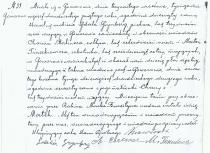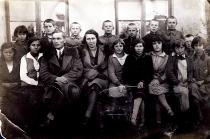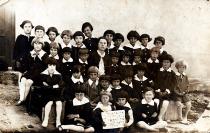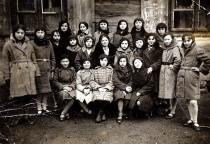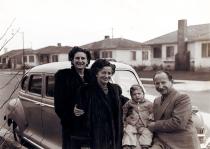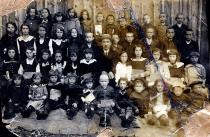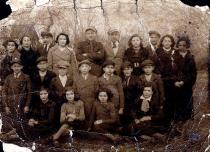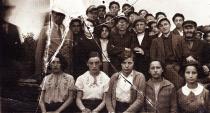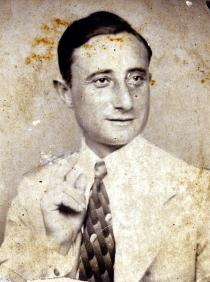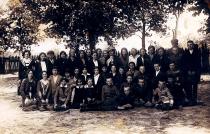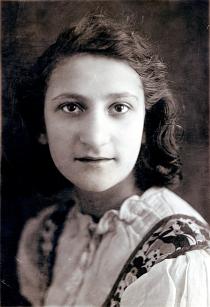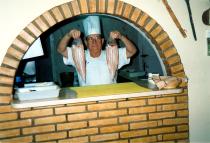This is my, Icchok Grynberg’s, youngest sister - Malka Perl Grynberg. In the time when the picture was taken, she was probably around 20. The picture was probably taken in Magnitogorsk (USSR) by my other sister, Sara, who worked as a photographer at that time.
I had a third sister, Malka. She managed to go to school [befor WWII] (It was a Polish public coeducational school). I can't say much about her. I was much older than she was, and we never spent much time before or during the war. I know that Malka was always very weak and sickly. Later, during the war, when she was in Russia with Mother, she started having serious heart problems. They couldn't save her. She died in Poland, in 1951. She was 24.
Magnitogorsk was a very big city. It was divided into several utchyastecks [utchyasteck is a city district]. There were long barracks for us. Each family got one room. At first we all lived together: Mom, Sara, myself, Motl and Malka. We were five people in one room. Near the barracks, I remember, there were stacks of fine coal. We used that for heating. Everyone took some to warm up. Otherwise we would have frozen to death. Water had to be carried, since there was no running water. There were no bathrooms, nothing. We had to go outside, in freezing temperatures. There were no telephones, no communication, it was even difficult to get letters . It lasted until Germans invaded Russia. That was on 22nd June 1941.
Sara stayed in Magnitogorsk with Mom and Sister Malka. Sara got married there. She met her husband at the end of 1943. His name was Sender Izrael. They didn't take him to the army, just like us, because he was a tailor. And tailors were needed in Magnitogorsk. But his brother was with me in the stroibat [construction battalion, short for : stroitielni batalion], so Sara and Sender married under the chuppah. They didn't have to hide it, but it wasn't officially recognized. They also had a civil marriage. There were no celebrations, there was no money for it. (I wasn't at the wedding, because I was already mobilized to work at that time). They lived in the 5th uchastka [Russian: disctrict]. His parents were elderly and they lived with them. The were no rabbis in Magnitogorsk. There were also no synagogues.
When my brother and I went to Ufaley, my mom, who was very religious, got a room in one small building. For those who wanted to pray, Mom set up a shtibl [Yiddish: room, where religious services are performed, prayers recited] there. It was illegal, but nobody bothered them. Whenever a Jew died, Mom would wash him or her and prepare the body for burial. She always got some money for it. She herself had nothing. There was a terrible famine. It was then that my youngest sister Malka came down with heart disease.
In February 1946 my sister Sara gave birth to a girl, Szejla. And in the Spring that year, they organized a train to Poland. It was one year after the war ended. Before that no one could go home. And, who would have had money for a ticket then?! So everyone went home - Sister with her husband and this small child, Mother, and Sister Malka. They went to Silesia, to the town of Swiebodzice near Swidnica. They got a house where some Germans had lived earlier. German Jews used to live in the town. And they had a small cemetery. This is where my sister's Malka Perl grave is as well.

